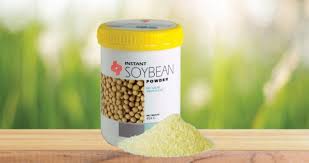In the quest for muscle gain and overall fitness, bodybuilders and fitness enthusiasts are always on the lookout for effective nutritional supplements. One such powerhouse supplement that has gained immense popularity is soya bean powder.
Derived from ground soybeans, this powder is packed with protein, essential amino acids, and numerous health benefits that support muscle growth, recovery, and overall wellness.
As a plant-based protein source, soya bean powder is particularly appealing to vegetarians and vegans, offering a robust alternative to traditional animal protein sources.
Soya bean powder stands out due to its high protein content. A standard serving can contain approximately 35 to 40 grams of protein, making it an excellent choice for those looking to meet their daily protein requirements.
Protein is crucial for muscle repair and growth, especially after intense workouts. The amino acids found in soy protein are essential for building and repairing muscle tissue, making it an ideal supplement for bodybuilders.
Furthermore, soya bean powder is a complete protein, meaning it contains all nine essential amino acids that the body cannot produce on its own. This completeness enhances its value, particularly for those on plant-based diets.
In addition to its protein content, soya bean powder is rich in isoflavones, a type of antioxidant that has been linked to various health benefits. Isoflavones may help reduce inflammation, improve heart health, and even support hormonal balance.
For bodybuilders, reducing inflammation can enhance recovery times and overall performance. Additionally, the heart health benefits are vital for maintaining endurance during workouts and ensuring that the body can effectively deliver nutrients to muscles.
One of the significant advantages of incorporating soya bean powder into a bodybuilding regimen is its versatility. It can be easily added to smoothies, protein shakes, baked goods, or even used as a thickening agent in soups and sauces.
This adaptability allows athletes to boost their protein intake without altering their favorite recipes significantly. Whether you prefer a morning smoothie, a post-workout shake, or a protein-packed pancake, soya bean powder can seamlessly fit into your daily nutrition plan.
When choosing the best soya bean powder for bodybuilding, several factors come into play. The quality of the product is paramount; opting for organic, non-GMO, and minimally processed options ensures that you receive a product free from harmful additives and chemicals.
Additionally, considering the protein content per serving, flavor, and solubility can significantly impact your experience with the powder. Some brands offer flavored varieties, while others maintain a neutral taste, catering to different preferences.
Furthermore, soya bean powder is often fortified with additional vitamins and minerals, such as calcium and vitamin B12, making it an even more valuable addition to a bodybuilder’s diet. This fortification can help support bone health and energy levels, contributing to overall fitness and well-being.
Nutritional Profile of Soya Beans Powder
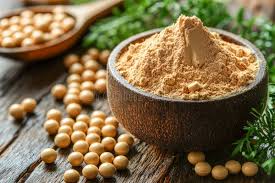
1. Protein Content: Soya beans powder is an excellent source of plant-based protein, providing approximately 36-40 grams of protein per 100 grams. This makes it an ideal supplement for muscle building and recovery.
2. Amino Acids: It contains all nine essential amino acids, making it a complete protein source. This is particularly beneficial for vegetarians and vegans who may struggle to obtain adequate protein.
3. Healthy Fats: Soya beans powder contains healthy fats, mainly polyunsaturated and monounsaturated fats, contributing to heart health and providing a concentrated energy source.
4. Carbohydrates: It has a moderate carbohydrate content, primarily composed of complex carbs and dietary fiber, promoting satiety and stable energy levels.
5. Vitamins and Minerals: Soya beans powder is rich in essential nutrients, including B vitamins (like folate and riboflavin), vitamin K, calcium, iron, magnesium, phosphorus, and potassium, all of which play crucial roles in various bodily functions.
6. Isoflavones: It contains phytoestrogens, particularly isoflavones, which have antioxidant properties and may support hormonal balance and reduce the risk of certain diseases.
Top Brands of Soya Beans Powder for Bodybuilding
1. Bob’s Red Mill Soy Protein Powder: This brand is known for its high-quality, non-GMO soy protein isolate, offering about 90% protein content per serving, making it a popular choice among bodybuilders.
2. NOW Sports Soy Protein Isolate: NOW Sports provides a highly digestible soy protein isolate that is low in fat and carbohydrates, perfect for muscle recovery and growth.
3. GNC Soy Protein: GNC offers a well-regarded soy protein powder that includes essential amino acids and is often used in bodybuilding and fitness regimens.
4. Organic Traditions Soy Protein Powder: This brand focuses on organic, non-GMO products and offers a soy protein powder that is rich in nutrients and free from additives.
5. Sunwarrior Warrior Blend: While primarily a blend of plant proteins, it includes soya beans powder for added protein content, making it suitable for those looking for a plant-based protein supplement.
Factors to Consider When Choosing Soya Beans Powder
1. Protein Content: Look for a product with a high protein percentage (ideally 90% or higher) to ensure you get sufficient protein per serving, especially for muscle-building goals.
2. Ingredient Quality: Choose a brand that uses non-GMO and organic soybeans to avoid pesticide residues and genetically modified organisms, ensuring a healthier product.
3. Additives and Sweeteners: Check for added sugars, artificial flavors, or preservatives. Opt for a product with minimal ingredients to maintain nutritional integrity.
4. Taste and Mixability: Consider how the powder tastes and its ability to mix well with liquids. Read reviews to gauge whether the flavor is pleasant and if it blends smoothly into shakes or recipes.
5. Price and Serving Size: Compare the price per serving to ensure you’re getting good value for your money. Sometimes, higher-priced options may offer better quality or taste.
Read Also: Chiggers: Description, Damages Caused, Control and Preventive Measures
Comparing Protein Content in Soya Beans Powder
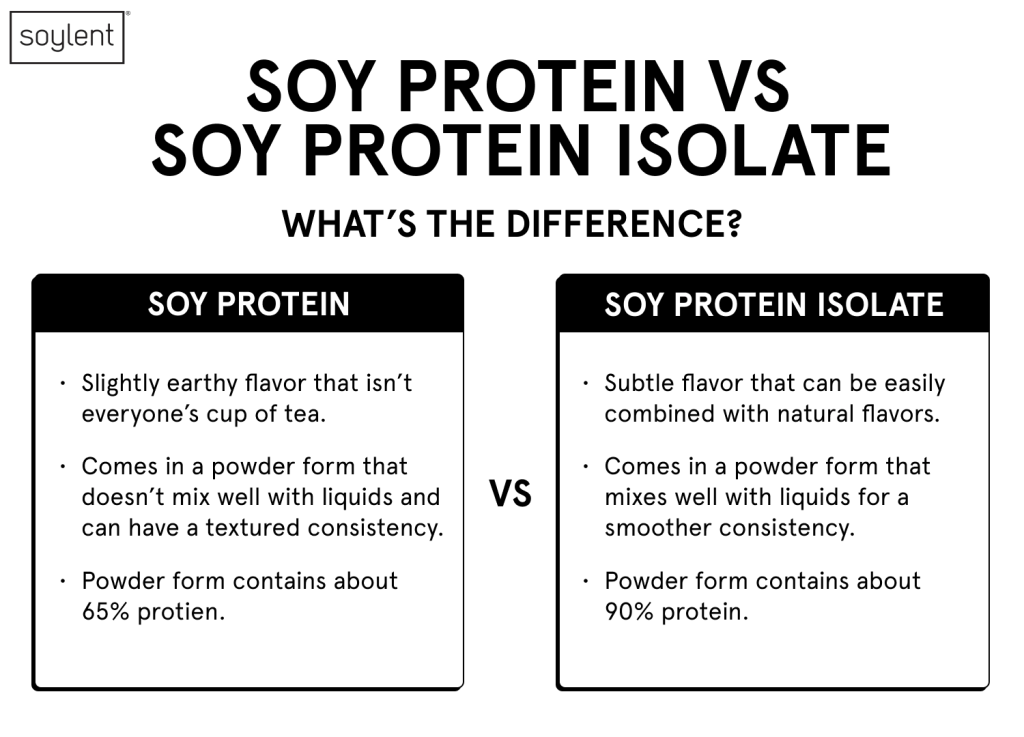
1. Soya Beans Powder: Contains approximately 36-40 grams of protein per 100 grams, making it a high-protein plant-based option that supports muscle building and recovery.
2. Whey Protein: Typically offers around 80-90 grams of protein per 100 grams, providing a higher protein content than soya beans powder, which may be beneficial for those focused on maximizing protein intake.
3. Casein Protein: Contains about 80 grams of protein per 100 grams, similar to whey but digested more slowly, making it ideal for sustained protein release during fasting periods.
4. Pea Protein: Offers about 80 grams of protein per 100 grams, comparable to soya beans powder, and is an excellent alternative for those avoiding soy or dairy.
5. Hemp Protein: Contains around 30-35 grams of protein per 100 grams, slightly lower than soya beans powder, but also provides healthy omega-3 and omega-6 fatty acids.
Flavor and Texture of Soya Beans Powder
1. Flavor Profile: Soya beans powder has a mild, slightly nutty flavor that can blend well with various foods and beverages, making it versatile for recipes.
2. Texture: It has a fine, powdery texture that can create a smooth consistency in shakes and smoothies when blended properly. However, it may require thorough mixing to prevent clumping.
3. Cooking Versatility: The neutral flavor allows it to be incorporated into both sweet and savory dishes, such as smoothies, pancakes, soups, and sauces, enhancing the nutritional value without overpowering the dish.
Best Ways to Incorporate Soya Beans Powder into Your Diet
1. Smoothies and Shakes: Add a scoop of soya beans powder to your favorite smoothie or shake for an extra protein boost, combining it with fruits, vegetables, and a liquid base.
2. Baking: Substitute a portion of flour in baked goods (like muffins, pancakes, and bread) with soya beans powder to increase protein content while maintaining texture.
3. Soups and Sauces: Stir soya beans powder into soups and sauces to enhance nutritional value and add thickness, blending it well to avoid lumps.
4. Energy Balls and Bars: Mix soya beans powder into homemade energy balls or bars for a quick snack option that provides sustained energy and protein.
5. Yogurt or Oatmeal: Sprinkle soya beans powder over yogurt or mix it into oatmeal for a nutritious breakfast that keeps you full longer.
Soya Beans Powder vs. Other Protein Powders
1. Nutritional Value: Soya beans powder offers a complete protein source, rich in essential amino acids, while other plant proteins (like pea or hemp) may lack certain amino acids.
2. Digestibility: Soya beans powder is generally well-digested, but some individuals may experience sensitivities. In contrast, whey protein is typically more easily absorbed for those who can tolerate dairy.
3. Allergen Considerations: Soya beans powder is suitable for those with dairy allergies or lactose intolerance, while those with soy allergies should consider alternatives like pea or rice protein.
4. Health Benefits: Soya beans powder provides additional benefits like isoflavones, which can have antioxidant effects and may support heart health, unlike most other protein powders.
5. Cost: Soya beans powder is often more affordable than whey protein, making it a budget-friendly option for those seeking plant-based protein sources.
Read Also: How To Grow, Use and Care For Threeawn Grass (Aristida Spp.)
Potential Health Benefits of Soya Beans Powder for Bodybuilders
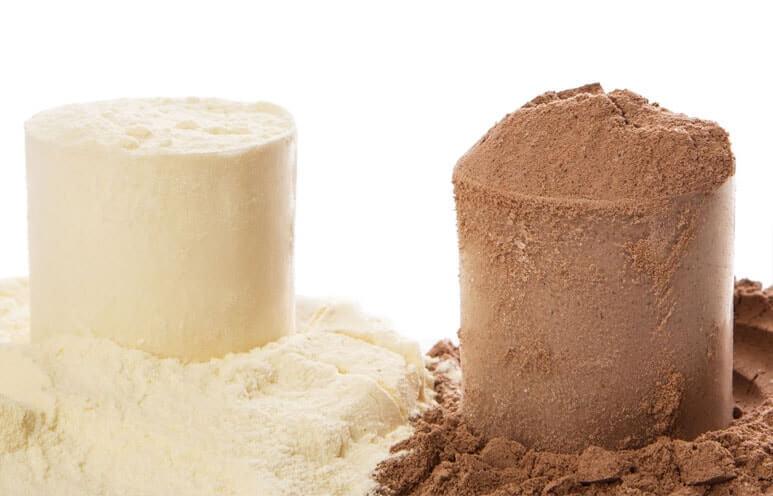
1. High Protein Content: Soya beans powder provides approximately 36-40 grams of protein per 100 grams, supporting muscle growth, repair, and recovery, making it an excellent choice for bodybuilders.
2. Complete Amino Acid Profile: It contains all essential amino acids, which are crucial for muscle synthesis and overall health, unlike some plant proteins that may lack certain amino acids.
3. Isoflavones Benefits: Soya beans powder is rich in isoflavones, which may help reduce muscle soreness and inflammation, aiding recovery after intense workouts.
4. Weight Management: The protein and fiber content can promote satiety, helping bodybuilders manage their weight while still meeting their nutritional needs.
5. Heart Health: Regular consumption of soya products is linked to improved cardiovascular health, which is essential for overall fitness and performance.
How to Store Soya Beans Powder Properly
1. Airtight Containers: Store soya beans powder in airtight containers to prevent moisture and air exposure, which can lead to spoilage and loss of freshness.
2. Cool, Dark Places: Keep the container in a cool, dark area away from direct sunlight and heat sources to preserve its nutritional quality.
3. Refrigeration: For longer shelf life, consider refrigerating the powder, especially if you live in a warm climate. This helps maintain its freshness and prevents rancidity.
4. Check Expiration Dates: Regularly check the expiration date on the packaging and use the powder before it expires to ensure maximum potency and effectiveness.
5. Avoid Contamination: Use clean, dry utensils when scooping the powder to prevent contamination and moisture, which can compromise the quality.
User Reviews and Testimonials on Soya Beans Powder
1. Positive Reviews: Many users report increased energy levels and improved recovery times after incorporating soya beans powder into their diet, attributing these benefits to its high protein content.
2. Versatility: Reviewers often appreciate its versatility in recipes, noting that it blends well in smoothies, shakes, and various dishes without altering the taste significantly.
3. Digestive Benefits: Some users highlight improvements in digestion and overall gut health, likely due to the fiber content in soya beans powder.
4. Weight Management Success: Many bodybuilders and fitness enthusiasts mention using soya beans powder as part of their weight management plan, praising its satiating properties that help control appetite.
5. Mixed Feedback: While most reviews are positive, some users with soy sensitivities report mild digestive discomfort, emphasizing the importance of individual tolerance.
Summary of Best Soya Beans Powder For Bodybuilding
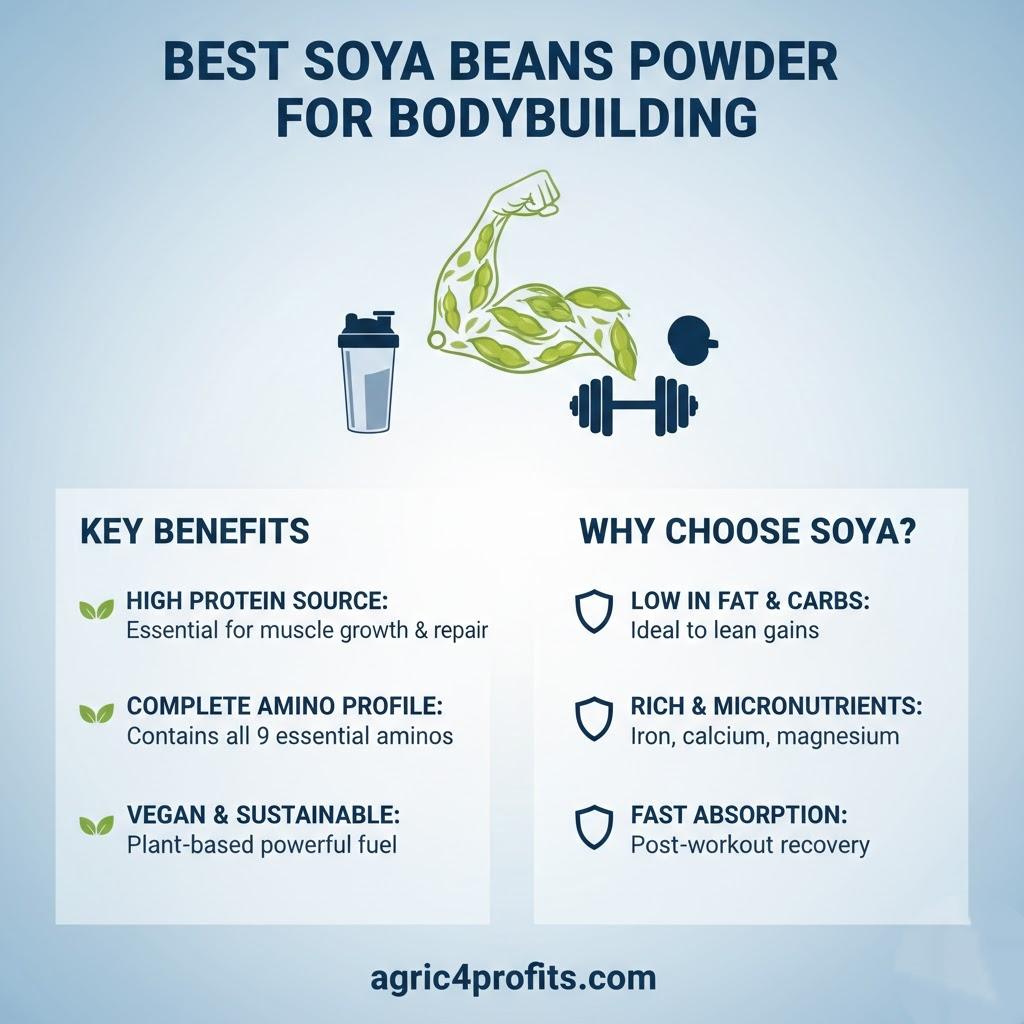
| Section | Key Points |
|---|---|
| Introduction & Benefits | Soya bean powder is a plant-based, complete protein source (35-40g protein/serving) rich in essential amino acids, isoflavones (antioxidants for inflammation reduction, heart health, hormonal balance), ideal for muscle growth, recovery, vegetarians/vegans; versatile in smoothies, shakes, baking. |
| Nutritional Profile | High protein (36-40g/100g), complete amino acids, healthy fats, moderate complex carbs/fiber, rich in B vitamins, vitamin K, calcium, iron, magnesium, phosphorus, potassium, isoflavones. |
| Top Brands | Bob’s Red Mill (non-GMO, ~90% protein), NOW Sports (low fat/carbs), GNC, Organic Traditions (organic, additive-free), Sunwarrior Warrior Blend (plant blend with soy). |
| Choosing Factors | High protein (≥90%), non-GMO/organic, minimal additives, good taste/mixability, value per serving. |
| Comparison with Others | Lower protein than whey/casein/pea (~80-90g/100g) but complete profile, more affordable, added isoflavones/heart benefits; pea/hemp as alternatives. |
| Flavor & Texture | Mild nutty flavor, fine powdery texture (needs good blending), versatile in sweet/savory dishes. |
| Incorporation Ways | Smoothies/shakes, baking (flour substitute), soups/sauces (thickener), energy balls/bars, yogurt/oatmeal. |
| Health Benefits for Bodybuilders | Muscle growth/recovery, reduced soreness/inflammation, satiety/weight management, heart health. |
| Storage | Airtight containers, cool/dark place, refrigerate in warm climates, check expiry, use clean utensils. |
| User Reviews | Positive for energy/recovery, versatility, digestion, satiety; some mild digestive issues in sensitive users. |
Frequently Asked Questions
1. Is soya bean powder a complete protein?
Yes, soya bean powder is a complete protein as it contains all nine essential amino acids required by the body, making it especially valuable for vegetarians, vegans, and bodybuilders on plant-based diets.
2. How much protein does soya bean powder provide per serving?
A typical 100g of soya bean powder provides approximately 36-40 grams of protein, with isolates often reaching 90% protein content per serving, supporting muscle repair and growth effectively.
3. What are the main health benefits of isoflavones in soya bean powder?
Isoflavones act as antioxidants, potentially reducing inflammation and muscle soreness, supporting heart health, improving recovery, and aiding hormonal balance for better performance.
4. Is soya bean powder suitable for vegans and vegetarians?
Yes, it is an excellent plant-based alternative to animal proteins like whey or casein, providing high-quality complete protein without dairy.
5. Which is better for muscle building: soya bean powder or whey protein?
Whey offers higher protein density (80-90g/100g) and faster absorption, but soya bean powder is a strong complete plant-based option with added isoflavone benefits; choose based on dietary preferences and tolerances.
6. Are there any side effects of consuming soya bean powder?
Most people tolerate it well, but some with soy allergies or sensitivities may experience mild digestive discomfort; moderation is key, and it is generally safe for bodybuilders.
7. How should I incorporate soya bean powder into my daily routine?
Add it to smoothies, post-workout shakes, oatmeal, yogurt, baked goods, soups, sauces, or energy bars for an easy protein boost without major recipe changes.
8. What should I look for when buying soya bean powder for bodybuilding?
Prioritize high protein content (ideally 90%+), non-GMO/organic sources, minimal additives/sugars, good mixability, and positive reviews for taste and value.
9. Can soya bean powder help with weight management?
Yes, its high protein and fiber content promotes satiety, helps control appetite, and supports muscle maintenance during calorie deficits or bulking phases.
10. How do I store soya bean powder to keep it fresh?
Store in airtight containers in a cool, dark place; refrigerate in warm/humid climates to prevent spoilage, rancidity, or loss of nutritional quality, and always check expiry dates.
Do you have any questions, suggestions, or contributions? If so, please feel free to use the comment box below to share your thoughts. We also encourage you to kindly share this information with others who might benefit from it. Since we can’t reach everyone at once, we truly appreciate your help in spreading the word. Thank you very much for your support and for sharing!
Disclaimer: This article is for educational and informational purposes only. The health benefits described are based on scientific research and traditional knowledge. They ayre not a substitute for professional medical advice, diagnosis, or treatment. Always consult a healthcare professional before using any herb or natural remedy for medical purposes.

